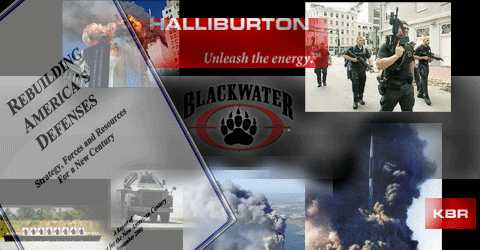by Greg Palast
Watch the BBC Report / Read the Transcript
September 10, 2007- On November 9, 2001, when you could still choke on the dust in the air near Ground Zero, BBC Television received a call in London from a top-level US intelligence agent. He was not happy. Shortly after George W. Bush took office, he told us reluctantly, the CIA, the Defense Intelligence Agency (DIA) and the FBI, “were told to back off the Saudis.”
We knew that. In the newsroom, we had a document already in hand, marked, “SECRET” across the top and “ ” – meaning this was a national security matter.
” – meaning this was a national security matter.
The secret memo released agents to hunt down two members of the bin Laden family operating a “suspected terrorist organization” in the USA. It was dated September 13, 2001 — two days too late for too many. What the memo indicates, corroborated by other sources, was that the agents had long wanted to question these characters … but could not until after the attack. By that time, these bin Laden birds had flown their American nest.
Back to the high-level agent. I pressed him to tell me exactly which investigations were spiked. None of this interview dance was easy, requiring switching to untraceable phones. Ultimately, the insider said, “Khan Labs.” At the time, our intelligence agencies were on the trail of Pakistan’s Dr. Strangelove, A.Q. Khan, who built Pakistan’s bomb and was selling its secrets to the Libyans. But once Bush and Condoleeza Rice’s team took over, the source told us, agents were forced to let a hot trail go cold. Specifically, there were limits on tracing the Saudi money behind this “Islamic bomb.”
Read more
September 12, 2007
Categories: 9/11, Big oil, Black ops, Bush, Cabal, Cheney, Civil liberties, Condi Rice, Conspiracy, Corruption, Dirty wars, False flag operations, Fascism, FBI, Impeachment, Lies lies and more lies, Military-Industrial Complex, Neo Cons, New world order, Police state, Repression, Secrecy, Traitors, US World domination, World domination . . Author: Travellerev . Comments: Leave a comment







 ” – meaning this was a national security matter.
” – meaning this was a national security matter.